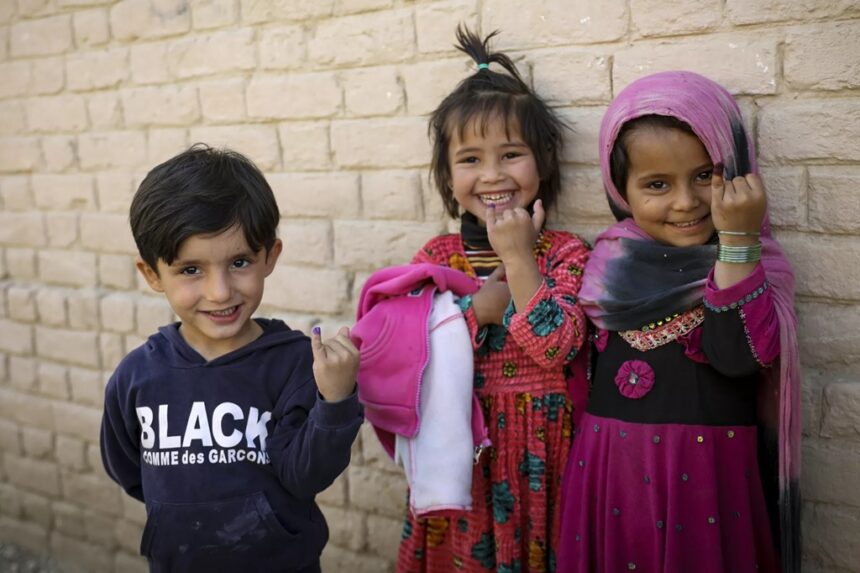A pioneering study published in The Lancet Global Health exhibits that community-driven incentives can significantly enhance the health outcomes of children in rural Pakistan.
Researchers at Aga Khan University’s Institute for Global Health and Development (IGHD) conducted the Community Mobilization and Community Incentivization- (CoMIC) trial, which provides a transformative approach to the prevention of preventable illnesses, including pneumonia and childhood diarrhea, which continue to be the leading causes of death among children under the age of five.
The CoMIC trial is predicated on the understanding that behavior change interventions should prioritize active community engagement and adapt context-specific strategies to facilitate change (a bottom-up approach for sustainable improvement).
Such an approach may be particularly beneficial when it is associated with tangible short-term collective benefits that address complex child health issues.
The study investigated the effects of two interventions: community mobilization alone and mobilization in conjunction with collective, conditional, non-cash incentives. Across a rural region in Sindh province, 48 clusters were involved.
Enhancements in child health indicators
The results indicated that incentivized communities experienced substantial enhancements in child health indicators. In comparison to the control groups, they exhibited a 30% increase in cleanliness habits, an 80% increase in breastfeeding, a 50% increase in the use of oral rehydration treatments, and a 30% increase in immunization.
The study demonstrates that extraordinary results are achieved when communities are actively engaged, empowered, and take charge of setting their own priorities, according to Dr. Jai K. Das, Assistant Director at IGHD and lead author of the study.
The capacity to select non-cash rewards, such as sanitation facilities or water pumps, cultivated a sense of accountability and ownership, thereby promoting sustainable behavior changes.
Substantial disparities in access to essential health services disproportionately impact Pakistan’s impoverished populations. While the nation’s immunization rates remain at 66%, less than one-third of rural households have access to adequate sanitation.
The Conditional Collective Community-Based Incentives (C3I) approach of the CoMIC trial not only enhanced health behaviors but also prompted communities to collaborate in the development of long-term solutions.
The results indicated that communities are more inclined to invest when they are granted the ability to determine incentives.
This was demonstrated by the fact that the cost-sharing rate, which exceeded the 25% target, was 36% due to contributions such as labor, land, and supplies.
In addition to fostering sustainability and ownership, these community-driven incentives also had a number of beneficial effects, including improved sanitation, increased community well-being, and better health outcomes.
Promotion of sustainable health
Dr. Zulfiqar A. Bhutta, the Founding Director of IGHD, underscored the trial’s broader implications: “This trial proves the feasibility of community-driven solutions in achieving scalable health improvements.”
The model is adaptable to other low- and middle-income countries in order to mitigate inequities and save lives.
The CoMIC trial underscores the importance of community ownership and engagement in the promotion of sustainable health improvements.
In order to confront urgent public health issues, particularly in low-resource environments, policymakers and organizations may implement the Conditional Collective Community-Based Incentives model.
Increasing the scale of this approach could improve sanitation, address vaccine resistance, and improve child health outcomes in a variety of contexts.
The framework provides a practical and transparent mechanism for delivering community-level benefits, while also promoting accountability and long-term investment in health infrastructure.
Dr. Jai K. Das emphasized the model’s broader applicability, positing that it could be tested for other health challenges, such as malnutrition and polio vaccine hesitancy, in a country like Pakistan. Furthermore, this approach guarantees transparency in the utilization of funds at the micro level, rendering it a viable alternative for widespread implementation.
The results of the CoMIC trial represent a substantial advancement in global health innovation by providing a sustainable and scalable approach to alleviate child morbidity and mortality.
It is advised that policymakers, donors, and global health organizations investigate the CoMIC model as a method of addressing health inequities through collective action and community ownership.
Stakeholders may enhance the long-term health outcomes of children and promote long-term community investment and accountability by prioritizing interventions that have tangible, immediate effects.
Related News:
Pakistan Hosts its 3rd Climate Conference to Address Urgent Climate Challenges

Geoff Thomas is an award winning journalist known for his sharp insights and no-nonsense reporting style. Over the years he has worked for Reuters and the Canadian Press covering everything from political scandals to human interest stories. He brings a clear and direct approach to his work.














